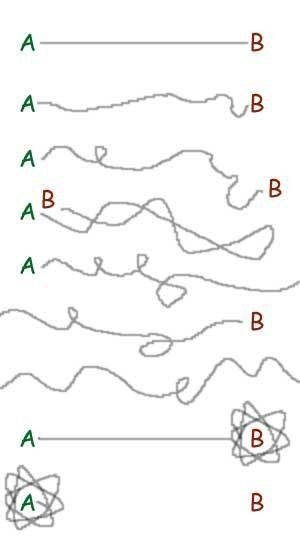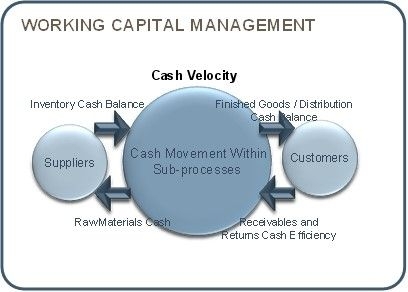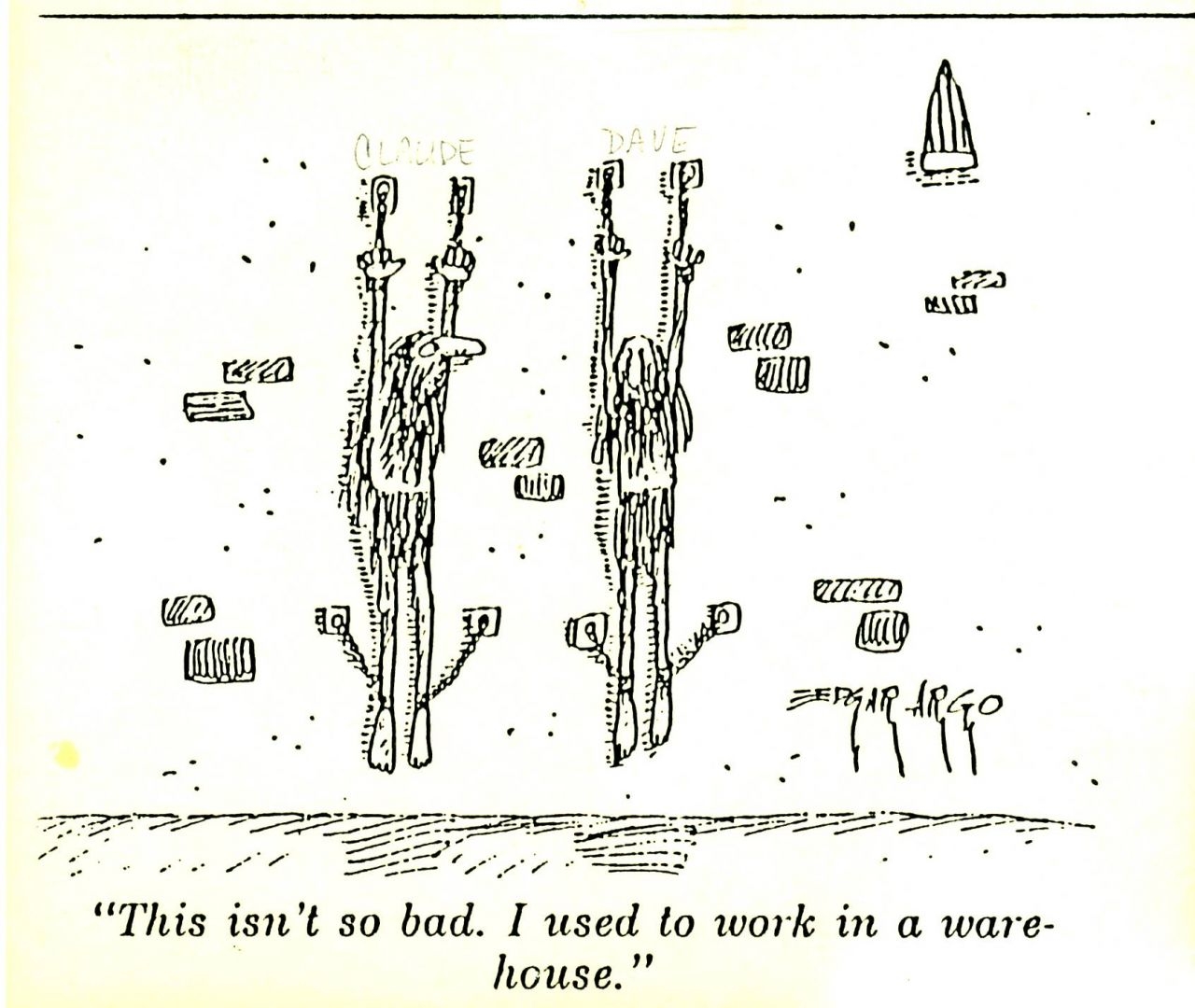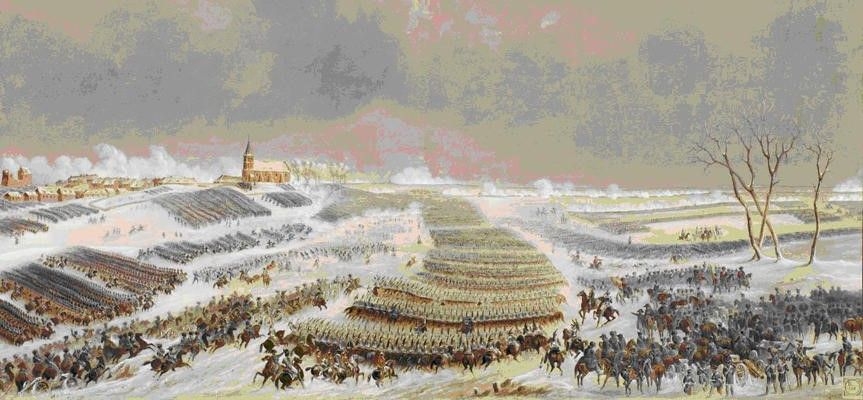What Is a Supply Chain?
As the story goes, a consultant coined the term Supply Chain. Whether you believe that story is unimportant. However the term was coined, Supply Chain grew into what some call an industry, some call a profession, and a few think is an unnecessary phrase.
Before Supply Chain, there was Logistics. Logistics as a word and an industry goes back centuries. The term is derived from the ancient Greek word logis, the logical movement of men and materials, and similar words can be found in other languages. Sun Tzu talked about logistics in his teachings about war, though most translations do not use the word. Every general, from the ancient to the modern, knows that without logistics supporting the effort, the war is lost.
If the term logistics has been with us for so long, why did somebody decide that we needed a new term to define something already defined? If you believe the story about the origin of the term, supply chain, you might imagine that it was just a way for consultants to attract attention to themselves. However, various organizations that once firmly believed they were in the logistics game have felt the need to change their names and their identities — the erstwhile Council of Logistics Management, for example, is now the Council of Supply Chain Management Professionals.
Logistician v. Supply Chain Professional
Way back in the Dark Ages — the 1980s — the new Distribution Vice President of the company where I worked interviewed the staff he'd inherited. One by one, we each spent 30 minutes with John, learning a little about him as he learned a little about us. At the time, I had the title Project Control Administrator; I was more than a project manager, but I was not called a manager because I managed processes and not people. (Make no mistake, I did also manage people, but HR in its not-so-infinite wisdom saw things differently.) In the interview John asked me what I did, and I told him my title. Cocking his head to the side, he asked me to describe my work — what I did, not the title. At the time I managed logistics projects, transportation analysis, distribution center improvements, material handling projects, and systems integration. As I explained to John the breadth of my work, he broke into a wide grin. “David,” he said, “you are a logistician. That is your vocation; it is what you do, and I suspect you do it very well.” Then he added, “Be proud of this vocation, because not many can do it well.”
I knew what logistics meant, having used the word properly since my teens, but I had never before heard the term logistician. After the meeting, I pulled my dictionary off the shelf and looked it up. Sure enough, that was what I did, what I was, and to this day, what I am.
When people ask me what I do, I tell them I am a logistician. Most will cock their heads to the side, like a dog hearing an unfamiliar noise and ask me, “What is that?” My typical answer is, “Somebody who knows the finer points of getting things from Point A to Point B.” To which they will then nod and say that I must be in trucking or warehousing. I will correct them, gently, by saying that sometimes planes, ships, barges, wagons, and other forms of transport are also involved, and much more.
By that point, they typically don’t want to hear much more. We all like to think of things in the simplest terms, and thinking of logistics as transportation is just one of those simplifications. That's a pity.
When did supply chain management become a profession? When I think of a profession, I think of something that takes years of special education, followed by rigorous testing, examination, and licensing. The traditional professions include medicine, law, and dentistry. If you want to be a doctor, a lawyer, or a dentist, you have to go through special school after you go to college. You have to pass tests, be judged by established members of the profession, and then become licensed in the state where you want to practice.
The occupations recognized as professions now include accounting and engineering. These professions maintain organizations in every state that test the knowledge of applicants. Only after an applicant passes his exams can he apply for a license to practice his profession. If a lawyer who has earned a license to practice in New York wants to practice in New Jersey, he still has to pass the bar exam in New Jersey. Doctors, dentists, and accountants all have to apply for licenses.
Is supply chain a profession? I don’t think so. In fact, I think it is a conceit to think that supply chain management is a profession. I know I am not alone in holding this opinion, other logisticians tell me they have asked the same questions and come to the same conclusions. I also know that many people will object to my opinion. That is fine, but their argument is born of the human need for significance. I stand by my opinion: the notion that Supply Chain Management is a profession arises from an excessively favorable opinion of our own abilities.
A Conceit
A conceit is an excessively favorable opinion of one's own abilities. Conceit is the root of the word conceited, and I think we all know the meaning of that word. I realize that my dismissal of supply chain management as a profession is a bold statement. I know some that will take offense, particularly those who have invested time and money in attempts to create certification programs like SCORE and the CSCMP programs, and those who have invested time and money to obtain those certifications. If I had invested time and money into learning how to take a test, and then invested more time and money in taking that test, perhaps I would be upset too. But I have not invested the time or the money because in the end, these certifications hold no real value.
Perhaps some will think that I am conceited for holding this opinion, but I know that I am not alone. A few years ago, I witnessed a scene that occurred when a consultant presented his business card to a prominent corporate officer. There was a long stream of initials and acronyms after the consultant's name on the card. After reading the card, this VP of Distribution made a rather politically incorrect statement, referring to the alphabet soup following the consultant’s name as “certification bullshit.” The consultant quickly took offense, asking why this executive did not respect his “professional certifications.”
Just as quickly the officer replied, “That long list of letters just means that you are good at taking a test dreamed up by a wanna-be professional organization. The only letters that earn my respect on a business card are MD, PhD, DDS, CPA, and Esq. And I only include the last one because they are smarter than I am.” While you could label this executive as conceited, he was one of the better-known masters of distribution at the time, somebody who could have put PhD after his name, but chose not to. Those certifications only lowered his opinion of the consultant.
So, let’s agree that supply chain management is not a profession. But if it's not a profession, what is it?
Let’s go to a more fundamental question. Is supply chain management a noun, or a verb?
Articles in This Series
Articles in This Series

What Is a Supply Chain?
As the story goes, a consultant coined the term supply chain. Whether you believe that story is unimportant. However the term was coined, supply chain has grown into what some call an industry, some call a profession, and a few think is an unnecessary phrase. Read More

The Best Performers Focus on Inventory Reduction to Improve Cash Creation
Where do best-in-class companies focus their cash creation efforts?Inventory reduction. The 2010 Aberdeen Working Capital benchmark data shows that best-in-class companies make cross-functional efforts at inventory reduction twice as often as laggard companies, who more often choose to rely on their financial departments to collect receivables faster and pay bills slower. Read More

How Did You Get into Supply Chain?
If someone had told me at age 20 that by the time I was 50 I would've walked away from a perfectly good paycheck in the logistics field and started my own business, my reaction would have been, "you're nuts." When I was 20 I was actively pursuing a journalism career. Read More

Logistics: The Science and the Art
Logistics is undoubtedly a science. When you think of the "Five Rights" (or perhaps Six, or Seven Rights) of Supply Chain, it feels quite mathematical in nature. Read More

Retailers Drunk on Black Friday and Cyber Monday Wake Up Hung Over on Boomerang Thursday
Retailers these days must be really strung out. We're talking beaten, bloodied, exhausted, and hung over—and there isn’t a bottle of aspirin in sight. The competition is ruthless, margins are shrinking, and customers are demanding ever greater levels of service and convenience. Read More

For Want of a Tape Gun
Today is Wednesday. If you ask a meteorologist for an accurate forecast for Sunday and he says anything other than "we have no idea," he's either lying to you or lying to himself. Read More

Logistics as a Matter of Life and Death
As a science, discipline, and art form, is Logistics serious enough to merit its own religion? Or are we adherents to the Universal Religion of Logistics simply over-glorifying a humble vocation with the simple purpose of transporting goods and people from Point A to Point B? Read More

Can Transportation Guys Do Supply Chain?
Previously, I posed a question to our readers, fellow practitioners, and some LinkedIn connections of mine: "Can transportation guys do supply chain?" The responses I received were unanimously positive, perhaps because no one wanted to challenge the premise with a poorly thought-through argument based in prejudice and narrow mindedness. Read More

Practitioners in History: Rudolf Diesel
As a scientist and visionary, Rudolf Diesel (1858-1913) was a practitioner of the highest order. Employing his knowledge of engineering and thermodynamics, he looked at the steam powered engines of the day and the huge coal industry built to support them and knew there was a better way. Read More

Did I Hear You Say… "Who is John Galt?"
Who is John Galt? That’s the way the book starts out. He is an economic concept, a solution to government economic oppression, and a real person (in the novel, that is). He is the stealthy character that represents the basic premise of the book "Atlas Shrugged." Read More

Here, Beer and Everywhere
I love watching new trends and emerging industries. They start as a blip on the radar, perhaps a new product you sample at the grocery store. Then you hear the buzz—that same product is talked about on the news or in the papers. It starts to become familiar. Read More

Practitioners in History: William Soltau
In the 1870s, New Zealand's young and fragile economy was in crisis. Its main export, wool, was suffering from a global slump in market value, and its other exports, like wheat, simply couldn't make up the difference. Read More


